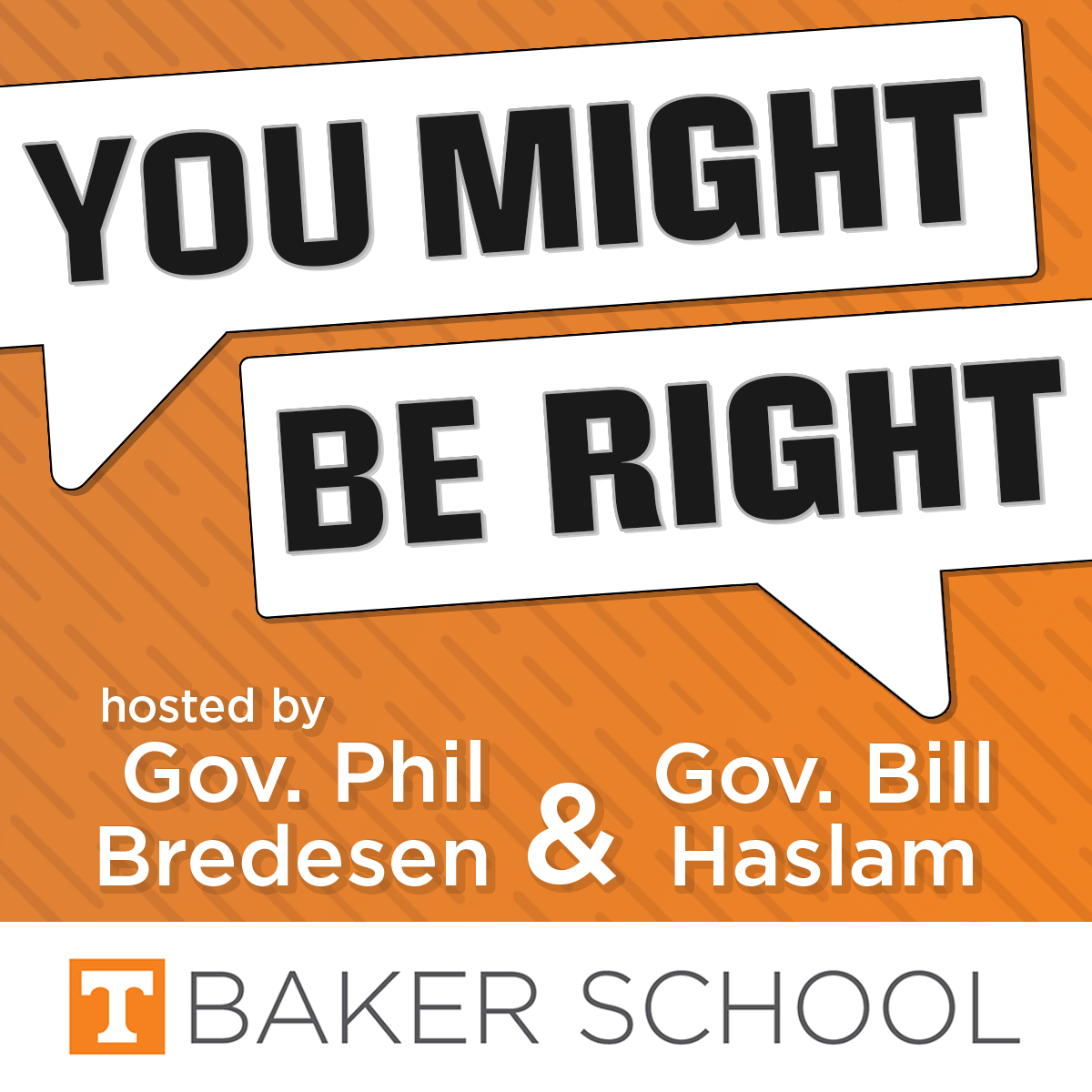Can the Constitution help fight polarization?
The Constitution is at the center of some of our most divisive and polarizing political disagreements from guns to abortion. But what if the Constitution is actually the solution to our challenges and not the source of our problem?
In this episode, our hosts, former Tennessee Governors Phil Bredesen and Bill Haslam, speak with Yuval Levin, senior fellow at the American Enterprise Institute and the author of a new book highlighting the Constitution’s original purpose of facilitating constructive disagreement and negotiating resolution in a divided society. Could this 250-year-old document provide a roadmap towards a more unified country today?
Subscribe and follow You Might be Right wherever you get your audio content – including Apple Podcasts and Spotify – to never miss an episode, or sign up for our email list to receive new episodes straight to your inbox each week here.
“The Constitution is much more like the solution than the problem”
Levin opened the conversation by explaining the premise of his book, American Covenant: How The Constitution Unified Our Nation – And Could Again, describing it as a “reintroduction to the American constitution for a divided time.”
“It starts from the reality that Americans are and feel very divided from each other and that there’s a sense of brokenness in our society of frustration. A lot of that frustration is directed to the Constitution,” he told the governors. “We think of it as standing in our way of getting what we want, as slowing us down, holding us back, and therefore is really part of the problem and is contributing to the intensity of our divisions. And the book tries to argue that is just about exactly backwards, that in this moment the American Constitution is much more like the solution than the problem because it was intended to help a divided society hold together.”
“Unity doesn’t mean thinking alike”
While the second half of the 20th century was “unusually cohesive,” Levin noted that today, Americans are searching for connection and belonging – but both the left and right are struggling to respond. The resulting identity politics and nationalism have only led to more division and disunity.
“In some ways, at the heart of that is the very complicated notion of unity that defines the American political tradition, which says that to be unified, doesn’t mean that we agree about everything,” Levin explained. “Unity doesn’t mean thinking alike. Unity means acting together, and if we understand that it is possible to act together even when we don’t think alike, then we can see how we can be one society despite our differences. Those differences are not going away… the question is how can we be one people given those differences?”
“A better outcome for everyone”
How can we learn to act together, even if we don’t think alike? Levin noted that many of the key features and practices of political life today, from federalism to the party system and competitive elections, are designed to help.
“One way to do that is by negotiating, by beginning from what we each want and figuring out how we can get what we want by giving someone else something. That’s what Congress is for, that’s what the state legislatures are for. That’s what a fair amount of our political life is for,” he said. “Another way is through competition, by putting people with different views and priorities into competition with each other and seeing what’s more appealing to the public, seeing what can result in a better outcome for everyone.”
Another way that we can act together without requiring us all to disagree is working through what Levin calls “constructive tension,” or allowing differences to persist.
“The American Constitution is actually built around this understanding that sometimes when you face a choice, a stark choice between two options, the way forward is actually to embrace both options in the ultimate outcome,” he explained. “The Constitutional Convention faced the question, should we empower the large states or the small states in designing the Congress? And the ultimate solution they arrived at was, yes, let’s empower the small states and the large states.”
“The most broken institution in the American system”
What needs to change for things to improve? Levin pointed to Congress as “the most broken institution in the American system at this point.” While the left and the right criticize different aspects of government, with the right focusing on “the excesses of the administrative state” and the left worrying about “the courts doing too much,” Levin noted that both problems arise “because Congress does too little.”
He warned against simply trying to make Congress more efficient or eliminating the filibuster, arguing that these actions miss the point. Instead, he said that he believes the solution is for Congress to return to its core responsibility of facilitating “cross-partisan bargaining and negotiation,” even though it’s frustrating. “That’s the purpose. That’s what we’re not doing now,” he said.
“These are our problems”
While frustration with the current political climate can cause people to blame both sides and want to check out of the process altogether, Levin strongly urged leaning in.
“The small r republicanism that underlies our politics begins from taking ownership of the country and its problems,” he explained. “These are our problems. These are my neighbors, these crazy people. They’re fellow Americans, and if there’s something to be solved here that’s not getting solved, we have to think about what part we could play in solving it.”
Subscribe and follow You Might be Right wherever you get your audio content – including Apple Podcasts and Spotify – to never miss an episode, or sign up for our email list to receive new episodes straight to your inbox each week here.

Join the conversation on Twitter by following @UTBakerSchool, @PhilBredesen, and @BillHaslam.


